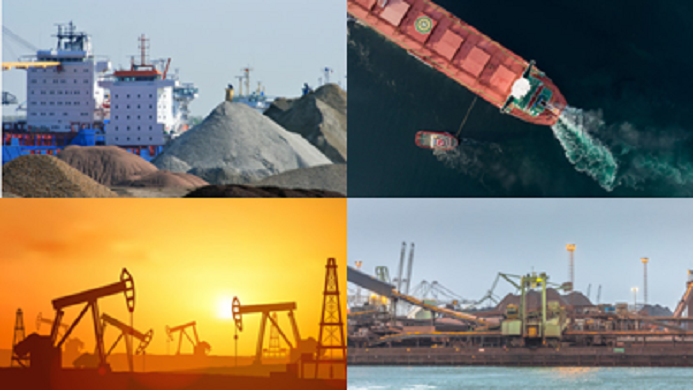The Quiet Before the Storm
As thunder and lightning rages around the British Isles, you can’t help but draw a parallel with global markets. As we come towards the end of summer, having had what little respite we have been allowed with lockdown measures, the low activity and pause for many markets may now come to an end.
If there was a word to typify the past few weeks, it would be ‘rangebound’. Oil has been stuck around the $43-$45 range for weeks, the Capes hardly moved in the past week at around $20,000, and iron ore is nudging itself up slowly above that psychological level of $100 at $115. VLCC rates have been bouncing around the WS35 to 40 level for weeks and a whole raft of other commodities have seen low activity and little movement.
This is probably a combination of people going on their summer holidays and a genuine complete bewilderment of what happens next. We are still not much closer to getting a significant solution to the virus outbreak, we are just learning to live with it more. If you started proclaiming at a street corner in the summer of 2019 that the end was nigh, that everyone should wear masks and stop travelling, you would have been locked up and sent to an asylum. So using the same theory, the person who is right about next year could be today’s crazy person on Twitter.
There has been, however, much more movement in safe haven commodities. Gold and silver whipped around wildly. Gold hit a high of $2075 before pulling back to $1863, and silver had a 15% correction mid-week but was still some 32% up on a month previous. The record price in gold is an obvious effect of the unprecedented scenario the world finds itself. The volatility just adds further example to the weak confidence and jittery nature of people.
Next to rock economies across the globe with be the harsh realities of the economic fallout from lockdown. Recessions everywhere, increasing job losses, government schemes to help businesses ending and companies fail to keep back to tide just to highlight a few problems. The UK economy shrank 20.4% between April and June, the worst in Europe, and other countries like Spain (-18.5%) and France (-13.8%) haven’t fared too much better. It is but a taste of future economic pain in what is increasingly looking like a slow and protracted recovery. Let’s hope for everyone’s sake that this recession doesn’t turn into a depression and somehow we get a sharp return to growth. We can then mark this period of history down as a freak blimp and look forward to a brighter future.
If you haven’t had enough of 2020, then you might really enjoy the end of this year which could bring fireworks. The second half of 2020 will give us the pleasures of a US election; second, third and maybe fourth wave of the virus; the China and US trade deal arguments of phase 2; and the conclusion of the Brexit negotiations. Let alone all the other unforeseen events that could crop up. As Donald Rumsfeld said ‘as we know, there are known knowns; there are things we know we know. We also know there are known unknowns; that is to say we know there are some things we do not know. But there are also unknown unknowns—the ones we don’t know we don’t know. And if one looks throughout the history of our country and other free countries, it is the latter category that tend to be the difficult ones’
But have no fear, the Russians are rolling out a vaccine they allegedly stole and haven’t tested, so everything will be ok. I wish everyone as we go into round two of 2020 after having been hit to the canvas a few times in round one. Get up, dust yourself down, and let’s take these markets week by week.
